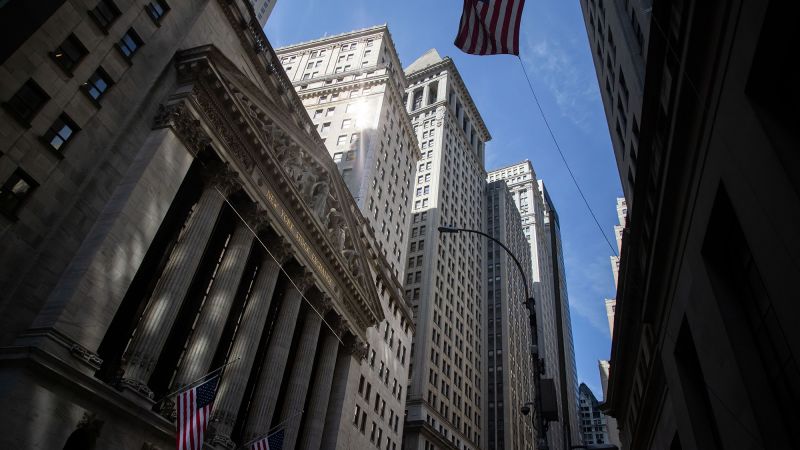China perceives the recent US trade deal as a significant victory with minimal concessions. The 90-day tariff pause and initial agreement have allowed tariffs on both sides to drastically reduce, generating praise from the Chinese public and media. To prevent reciprocal tariffs, US and China have agreed to temporarily halt the majority of tariffs on each other’s goods – a decision that has various implications for the stock market.
The semiconductor firms Broadcom and Nvidia, e-commerce giant Amazon, and tech conglomerate Apple are among the significant beneficiaries of eased US-China trade tensions. Broadcom shares rose by over 5.5% due to the firm’s substantial business in China, with the country accounting for 20% of its overall revenue last year. Similarly, Nvidia saw a nearly 5% increase in shares, and Amazon experienced nearly an 8% surge in its stock. It should be noted, however, Jim Cramer cautioned against chasing this rally due to the risk of potential selling pressure.
Meanwhile, a technical glitch in Fidelity investments prevented some investors from accessing their accounts on the day of the market rally – an issue that may have been particularly challenging for day traders, institutional investors, and options investors.
Returns in the market’s trust in President Trump came with hopes that the US-China trade deal will prevent potential damage to the stock market. However, investing conditions remain cautious, as uncertainties surrounding the negotiations persist.
Lastly, the strong rally led by the US-China agreement to cut tariffs saw major averages rally across the board, boosting optimism among investors and reducing fears of a prolonged trade war.
Stock futures soared on May 12 following the announcement that the U.S. and China agreed to temporary tariff cuts. The S&P 500 is expected to open 3% higher, the Dow is set to increase by roughly 1,100 points, and the Nasdaq 100 may open up by 4%.
However, pharmaceutical stocks are underperforming due to anticipation of President Trump’s proposal to lower U.S. drug prices. Stocks such as Pfizer, AbbVie, Merck, and Eli Lilly are currently lower. Companies most likely to benefit from eased trade tensions include those that manufacture goods in China for sale in the U.S.
Pharmaceutical stocks also experienced volatility, with initial losses recovering later in the day after fears regarding the executive order on drug prices seemed less severe than initially anticipated. Merck’s shares rose 5%, with Pfizer, Bristol-Myers Squibb, and Eli Lilly gaining more than 2% each.
Tech stocks, including Amazon and Tesla, which had been seeing declining sales in China, each rose about 7%. Apple shares increased more than 5%.
Retail stocks experienced a significant boost following the U.S.-China tariff agreement announcement. Five Below and RH both soared about 17%, while Nike, Lululemon, and Estée Lauder rose by around 7%.
Carvana, a used-auto retailer whose share price had previously dropped significantly, has been executing well, with a 38% year-over-year revenue increase. The company’s shares are up 34% this year as used car prices rise and demand for value-oriented service offerings heat up.
Chinese stocks also gained, with e-commerce giants PDD Holdings and Alibaba each rising more than 6%, and tech giant Baidu surging 5%.
NRG Energy gained about 23% following an announcement that it plans to acquire a power portfolio from LS Power for $12 billion that consists of natural gas generation facilities across nine states.
The top performers in S&P Industrials in the current market environment, with the sector leading the pack in terms of headcount. However, very few top stocks exist in materials, real estate, and energy sectors.
Sources:
 China sees the U.S. trade deal as a huge win for Beijing
China sees the U.S. trade deal as a huge win for Beijing Jim Cramer sees 4 stocks as our biggest winners of easing U.S.-China trade tensions
Jim Cramer sees 4 stocks as our biggest winners of easing U.S.-China trade tensions Fidelity login glitch kept some investors out of their accounts as market rallied
Fidelity login glitch kept some investors out of their accounts as market rallied Markets are putting their trust back in Trump, as long as trade deals keep going
Markets are putting their trust back in Trump, as long as trade deals keep going Jim Cramer says investors shouldn’t chase Monday’s market rally — here’s why
Jim Cramer says investors shouldn’t chase Monday’s market rally — here’s why Jim Cramer’s top 10 things to watch in the stock market Monday
Jim Cramer’s top 10 things to watch in the stock market Monday 5 things to know before the stock market opens Monday
5 things to know before the stock market opens Monday Perplexity AI wrapping talks to raise $500 million at $14 billion valuation
Perplexity AI wrapping talks to raise $500 million at $14 billion valuation Stocks making the biggest moves midday: Amazon, Alibaba, Merck, Five Below, Nike and more
Stocks making the biggest moves midday: Amazon, Alibaba, Merck, Five Below, Nike and more Best Stocks: Once under $4, this beaten-up car dealer stock is back from the dead and trending higher
Best Stocks: Once under $4, this beaten-up car dealer stock is back from the dead and trending higher






























































